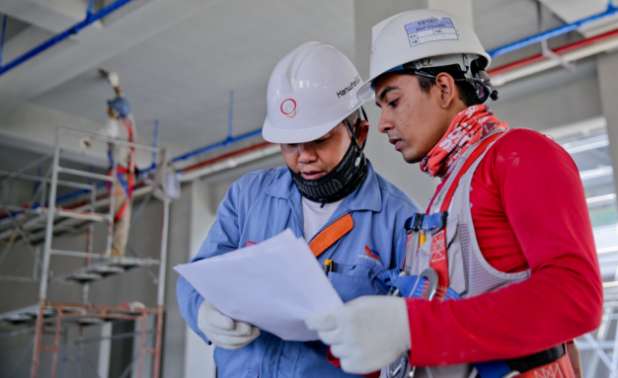Transforming HR: Unleashing Efficiency with Automation
In the fast-paced world of business, staying ahead means embracing change—especially in Human Resources (HR). Automation emerges as a shining light of efficiency, promising to streamline HR operations and carve out more space for strategic creativity. For companies aiming to stay competitive, weaving automation into HR processes is a game-changer, not just a nice-to-have. Let's explore how automation can revolutionize your HR department.
1. Recruitment and Hiring: The New Era
Enter the new dawn of recruitment with automation. Imagine AI algorithms zipping through resumes, effortlessly pinpointing ideal candidates. Automated screening isn't just a time-saver; it's a champion of fairness, paving the way for a more diverse and inclusive workplace.
2. Onboarding and Orientation: Smooth Beginnings
The onboarding journey is crucial—it's an employee's first taste of company life. With automation, imagine seamless introductions: personalized welcome packs, crucial documents, and training schedules delivered flawlessly. This ensures new hires are engaged and informed from the start, setting a positive tone.
3. Employee Data Management: Streamlined and Secure
Forget the days of drowning in paperwork. Automation brings a centralized hub for employee data, reducing errors and ensuring compliance with privacy laws. It's about keeping everything in one secure, easily accessible place.
4. Performance Management: Clear and Fair
Automating performance management transforms it into a precise, objective system. Employees get timely feedback, promoting a culture where everyone is keen to grow and excel. It's about nurturing continuous improvement and celebrating achievements.
5. Training and Development: Customized Growth
With automated training platforms, create personalized learning journeys for every employee. Whether it's e-learning or scheduled workshops, automation aligns professional development with company goals, ensuring everyone grows together.
6. Payroll and Compensation: Precision and Peace of Mind
Payroll becomes a breeze with automation—calculating wages, taxes, and deductions accurately, ensuring compliance, and building trust among the team. It's about accuracy and ensuring everyone feels valued and secure.
7. Employee Benefits Administration: Effortless Choices
Navigating employee benefits is simpler with automation. Employees can easily pick their benefits, while the system takes care of the details. This frees up HR to focus on strategy and analysis, enhancing the benefits landscape.
8. Time and Attendance: Automatic Accuracy
Automated tracking of time and attendance offers real-time insights, eliminates manual errors, and ensures fair practices. It's about having a transparent system that everyone trusts.
9. Offboarding and Exit Interviews: Respectful Goodbyes
Even farewells are handled with grace through automation. Offboarding checklists ensure a smooth transition, capturing valuable feedback and maintaining positive relationships with departing employees.
Conclusion: The Future of HR is Here
Automation in HR isn't about replacing the human element; it's about enhancing it. By eliminating routine tasks, HR professionals can focus on what truly matters: people. Embracing automation means creating a more dynamic, responsive, and people-focused HR department.
FAQs
Can automation really make recruitment more diverse? Yes! Unbiased algorithms mean candidates are chosen for their merits, promoting diversity and equality.
Will automated onboarding lack personal touch? Not at all. Automation takes care of the logistics, allowing HR to personalize interactions and make new hires feel truly welcome.
Does automation depersonalize performance reviews? Quite the opposite. It lays out a clear framework for feedback, freeing up managers to provide personalized, supportive guidance during reviews.

 Helping the
Helping the Specialized
Specialized Industrial
Industrial Healthcare
Healthcare MSP & Contingent
MSP & Contingent Innovative
Innovative Business
Business







.jpg)